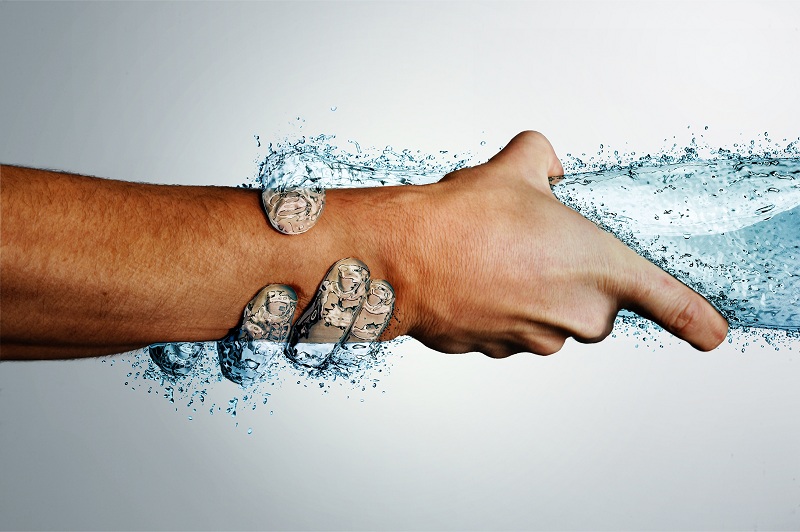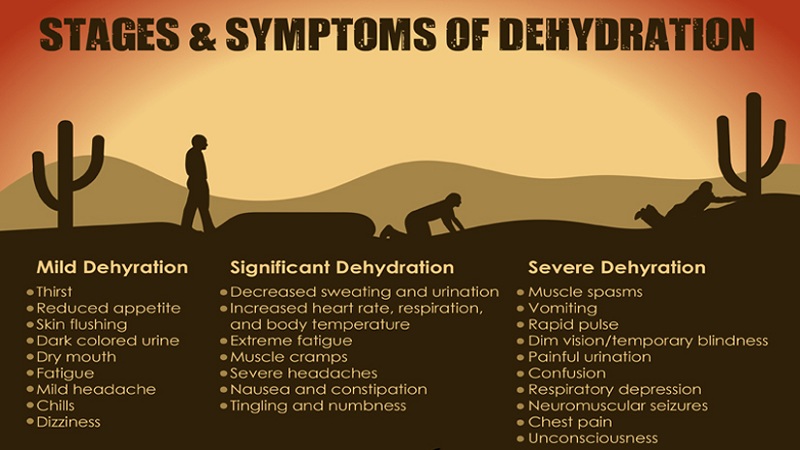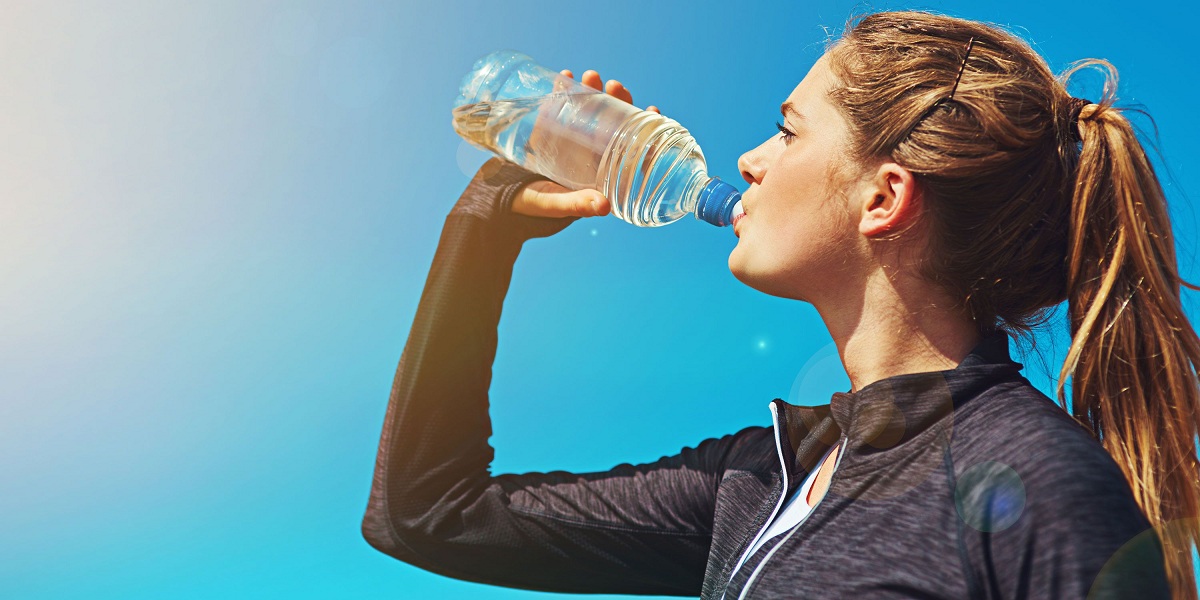I hope you never have to suffer an experience like this. Dehydration, a phenomenon that seems like it can never happen to you, at the least you get distracted, it may be too late…
What is dehydration?
It is a state of our body in which there has been an appreciable decrease in water for various reasons, such as sweating due to prolonged physical exercise or physical activity in hot environments, or some type of disease or pathology (diarrhea, vomiting …).
There is a high risk of dehydration if we practice physical activities in very hot environments
As the water content in the blood begins to decrease, the resulting imbalance in the levels of minerals, salts, and sugars can cause several adverse health effects.
Why does dehydration occur?
Dehydration occurs when the body loses more water than it ingests and is often accompanied by alterations in the body’s mineral salts or electrolyte balance (especially alterations in sodium and potassium levels).
Do not give a pulse to the water, and stay hydrated, especially if you’re going out for a run in the summer, going to the box or even hiking in the mountains …
How do we lose water?
The hydration level of the body is affected by the rate of water intake and metabolic losses. The main ways of water loss or dehydration are urination, defecation, perspiration, and breathing.
These values attend to subjectivity, and in fact, can vary between people
How Does Dehydration Affect Sports Performance?
With only the loss of between 2-4% of body water the physical capacity decreases. In endurance sports, such as long-distance races (where you can lose several liters), if these athletes did not hydrate during the test, not only could they not perform optimally, but they would put their lives in serious danger.
“Wood Murph” one of the most demanding tests of CrossFit Games, where the risk of dehydration is extremely high
Around 65% of the human body is composed of water, which helps in numerous functions such as the lubrication of joints and eyes, digestion and the excretion of metabolic waste and toxins.
Dehydration decreases the quality of your workouts
Thermoregulation
The water is essential for regulating body temperature and to the recovery process. When we perform intense exercises, in a hot environment, the loss of water is high for most people.
The loss of sweat is a physiological response to the control of body temperature through the secretion of water, but this loss of fluid is not always compensated by the intake of fluids and regulation of temperature.
Physiological consequences in the body
- It can increase the heartbeat.
- It can decrease blood flow, thus compromising the supply of oxygen and energy substrate for the muscles.
- Increase in body temperature-
- Decrease in performance
In practice, it seriously affects performance during workouts and makes you feel more tired more quickly. If you perform exercises in these conditions, it promotes a rapid rise in body temperature and suffers injuries and cramps.
Practical tips
-
Before 1 hour of training, drink 500ml of water.
-
The intake of carbohydrates is essential for energy replacement and delay fatigue.
-
Drink every 15-20 minutes during training, 100-150ml of water.
-
Weighing before and after training is a simple and effective procedure to determine the amount of water/liquids that should be ingested after training. 1 liter of water/liquids per kg lost is recommended.
Dangers of Dehydration
The danger of the effects of dehydration is the thickening of the blood that causes an excessive and forced work of pumping the heart to try to maintain the ideal circulation and a considerable elevation of the corporal temperature, which can cause exhaustion by heat, blow of heat, or even in high degrees, death.
But also in lower grades, it is very negative for any athlete. Continued sweating during a prolonged exercise may exceed 1.8l per hour.
Check This Out: Practicing Fitness Exercises
Symptoms of Dehydration
Symptoms of Dehydration during Exercise and How to Prevent It
How to avoid dehydration?
The correct hydration is of paramount importance for physical performance and, since we can not depend on thirst to control it, the simplest measure is to monitor the frequency of urination. As a rule, a well-hydrated person urinates every two hours or so. If this periodicity is longer, it is possibly a sign of an insufficient intake of water or liquids.
Drink before, during and after intense sports or in hot and humid climates
Baby without Thirst
If we are going to perform a physical exercise, it is highly recommended that we drink before starting the activity, even without thirst. The total volume of liquids to drink depends on body weight, physical activity, and temperature, among other factors. Similarly, although it is not a sport what we are going to do, the conditions and weather are adverse for our activity (hiking in the mountains …), it is also quite important to stay hydrated.
Athletes and athletes should pay special attention to daily hydration to perform optimally in training and, of course, during the competition.
Fluid Intake and Exercise
Before the Exercise
You should consume between 5-7ml of fluid per kg of body weight at least 4h before exercise. Around 2h before, should consume between 3-5ml / kg body weight.
During the Exercise
As a measure to prevent dehydration, in people who practice exercise in hot environments, it is recommended to ingest small amounts of liquid, in the form of short and frequent sips, as for example, in breaks between sets. Paradoxically, we do not efficiently replenish liquids during the course of the exercise, ingesting at will.
After the Exercise
In this case, we will choose to ingest around 600-700ml of liquid for every 450g of weight loss. Here, we have to foresee that urine will also be produced during the rehydration process, and we will be evaluating it. To enhance this rehydration, it is recommended to eat foods rich in mineral salts, or directly add electrolytes to our drink.
Supplements to Prevent Dehydration
Depending on the objectives, intensity, and condition of the athlete, it will be possible to consider including sports products targeted to take during the course of the sporting activity.
There are recovery supplements designed specifically for use right after a hard training session or a competition, to provide the body with all the essential substances to stimulate recovery and tissue regeneration.


